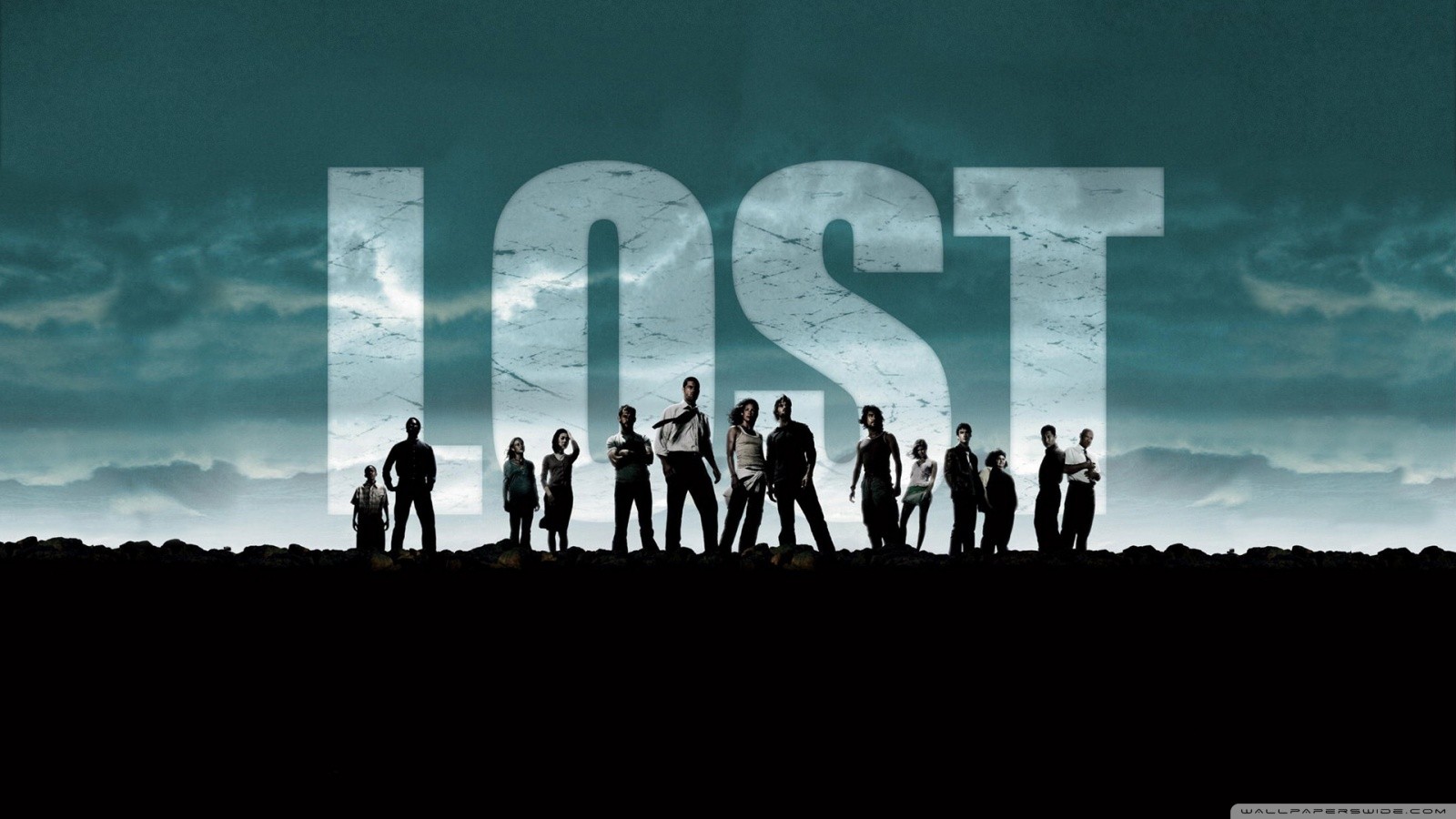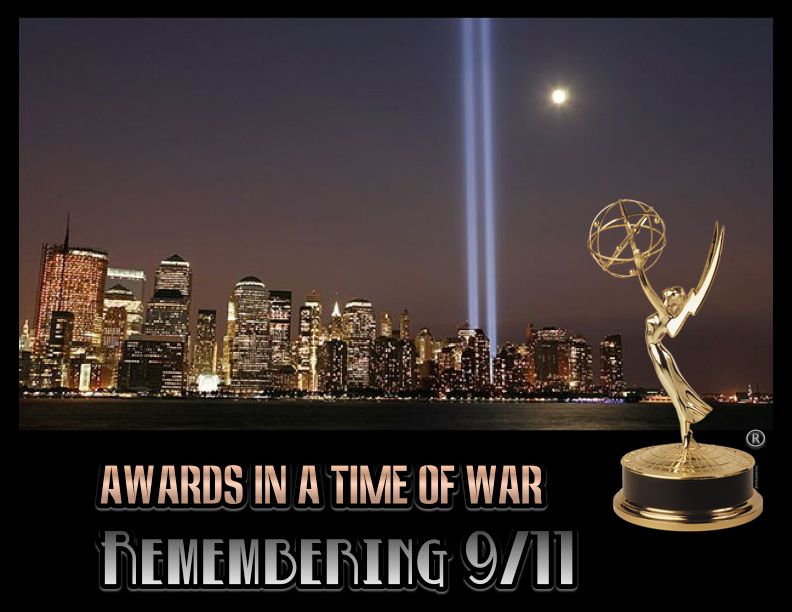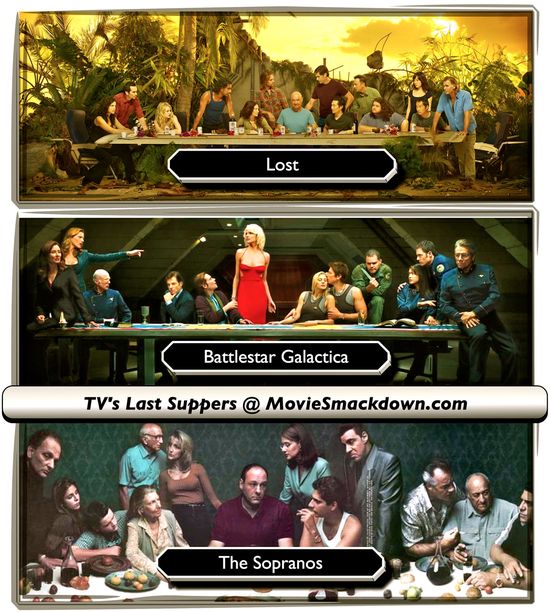
 So, “Lost” has ended. Â It’s over.
So, “Lost” has ended. Â It’s over.
After six years, viewers got their closure with “Lost”, a television series that became a pop culture phenomenon like no other and shook the foundations of how TV is done — and will most likely do so for many years to come until (like Matrix “bullet-time”) we grow old of it and beg for non-mythology series like Law & Order to be revived.
Season 6 of “Lost” was clearly its most controversial — more then the Writer-Strike-Plagued Season 4. This year, every Tuesday, fans hit the internet decrying or lauding the choices that were being made by the showrunners. Â Answers were given…non-answers followed…more mysteries erupted…things fall into place…fell through place…
However, showrunners Damon and Carlton promised: “it’ll make sense in the end.”  And honestly…it does.  Does it make up for some of this season’s flaws and missteps?  Not entirely. And “Across The Sea” almost seems entirely unnecessary and slightly gratuitous considering last night’s episode, a complicated explanatory mess the showrunners could’ve spared themselves considering where they wanted to take us in the end.
THE END: EXPLAINED?
At the end of “The End,” viewers learn the “sideway-reality” is in fact a form of the afterlife that I’ll call “Limbo.” Â Some have suggested that this was Paradise, a place where all the Losties’ fantasies and deepest desires come true. However, this doesn’t appear to be the case on closer examination. Â What follows is only my opinion, and not to be taken as a nailing of what Darlton had in mind.
Limbo seems to be a staging ground — a last test — to prepare one to enter Heaven/Nirvana/etc (sound familiar Battlestar fans).  In this Limbo, a lost soul is granted what they wanted or desired in their terrestrial life — all those things we whined about not getting, we get…only to realize that what they wanted is not what they needed and thus move on to peace.  Limbo is “Life” proving to a soul that it got what it needed, pushing them to let go of what they wanted and move on to join the warm and fuzzy spiritual whiteness beyond those church doors (though I doubt we all get a Christian Shepherd to shepherd us through those doors…)
Now, in Limbo, our Losties had versions of what they thought they wanted in life and what they’ve whined about wanting for six years now:
For Jack, it was to have a father/son relationship that worked (albeit with the roles reversed) and a successful career.  For Juliet, a career and a husband.  For Sawyer, a stable job that has integrity.  Hugo, respect and power from his money.  On paper, it does indeed look like Paradise until you start examining how things go and how the characters react to Paradise.
They’re bored, often unhappy — empty even.  They’re stagnant.  Jack just does his job.  Juliet has none of the passion of saving her sister or saving babies that she once had.  Charlie is a drugged-out jerk. On and on, the characters have illusions of happiness that only set them up to feel unfulfilled and stagnant if only in a spiritual way.
Most important, in this Limbo, all the characters still struggle with the same flaws and doubts and insecurities that plagued them throughout their pasts. Â Even more importantly, with flaws that were killing them prior to their arrival on The Island. Â And why have none of these people changed?
Well, The Island sank and they never went there.
A question plaguing many is why and how The Island sank in Limbo?
Well, the Island sank because Limbo requires it to be.  The Losties wanted to never crash.  They wanted to live out their lives uninterrupted by their conflict and turmoil on The Island.  So Limbo, in fulfilling its purpose as a place where one goes to be confronted with their illusory happiness, had the Island sunk and destroyed (perhaps even as we saw in Season 5 only in Limbo).  Now why wasn’t the Island just wiped from existence?  Why did it still have the Sonic Fence and the others cabins?
Prior to Oceanic crash and throughout history, there were other people who would require a raised Island to complete their spiritual path toward realizing that what they wanted isn’t what they needed.  No doubt Eloise and Wydmore in the 1940s visited The Island and had a different experience — maybe they even were not banished and got what they wanted that way.  Or take Ben’s Dad in Limbo, an old man nearing his death that says upon careful reflection: “I wish I’d never left that Island.”  This is key, as this old man on his death bed comes to the enlightened realization that while he wanted to leave The Island (in real life as we saw in Season 5), he actually was better off on the Island…
…and so Limbo robs the Losties of the Island so they can come to the same realization.  The final moments — each awakening — is just as much about the Losties realizing they needed each other as them realizing that they needed The Island.  It’s a heavy and ambitious arc that daringly ties together six seasons of drama and narrative: all the Losties realize, appreciate, and learn to accept and honor the Island.  After spending years trying to escape, watching each other die and struggle, they don’t resign themselves to The Island, they embrace it wholeheartedly as the best moments of their lives.  They were heroes, traitors, saviors, martyrs, friends, lovers…
They were alive and growing as people on The Island.
Some people have asked questions like “Why did Juliet say ‘it worked'”? Â The same reason she said this was the same reason Desmond thought there was a reality where things went right. Â Juliet was dying, hanging between life and limbo. Â She saw Limbo and mistook it for reality. Â Just as Desmond, blasted with EMP, had a near-death experience and temporarily went into Limbo and mistook it for something more than it was…
But what about Keamey being killed? Â How can people die in Limbo? Â This is a slight problem for me too. Â But if you look at Limbo as a prism, you can see how each lost souls experience can reflect on a different plane, all those planes refracting the same spiritual light source. Â Sayid killed Keamey from “his perspective” in the prism, but Keamey is no doubt going on his own journey on another plane of the prism…and maybe already completed it.
One thing is for certain, Limbo is entirely subjective and yet objective. Â A question to ponder is whether — like Ben’s father — one must live out this Limbo lifeline in its entirety and then toward the end realize that what they thought they wanted they didn’t need and thus moves on when they die… Â Or does someone simply vanish from Limbo when they complete their journey?
If it is the former, then it is interesting to think that our Losties got a quick shortcut to moving on. Â By having Desmond push all of his friends to awaken sooner rather than later, they were given a shortcut to Heaven. Finally, the Losties catch a break! Â And who could they have to thank for it?
Jacob…possibly. Â Jacob asked Desmond back to the Island via Wydmore. Â Did Jacob know that Desmond would have a near-death experience and fully awaken his Limbo counterpart so as to push the others to reawakening? Â Was this shortcut Jacob’s only gift to the Losties for their time spent protecting The Island?
Who knows? Â And I will say it’s one of those things that doesn’t matter — although it’d go a long way to redeeming the whiney, annoying child-god Jacob turned out to be.
No doubt people will be angry at the lack of scientific reasoning behind the show. Â I was and still am. Â I do not buy that “Lost” was only about the characters. Â It was about mystery and intrigue just as much as it was about its characters. Â There is something annoying in Damon and Carlton avoiding the answers to questions that they themselves may not have the answer to…yet the emotionality and thematic resonance of the finale make up for it in some respects, by providing a complex tapestry of themes that will no doubt give hardcore Lost fans years of social isolation away from mainstream America.
Lastly, the one reason I think “it makes sense” as Darlton promised us it would is the manipulative structure of Season 6:
Since Season 5, viewers have been given the hope that their favorite characters — those that died — were not dead.  Charlie could be resurrected by this bomb going off?  So could Shannon?  Locke?  On and on, being dead was in question.  Did what happen have to happen?
Season 6 continued to build on this audience hope by showing a “sideways reality” where our characters were all still alive and well.  Furthermore, we had the added pleasure of waiting with anticipation as our favorite characters (most notably Locke) reawakened to their true identities.  Locke especially, since we were seeing the MIB masquerade and dishonor Locke’s name in real life and hungered for Locke’s true return.  This was all great emotional build-up, getting audiences excited in an almost tantric way by building and building and building on this hope and question of will these characters stay dead?
Sayid sacrifices his life and we take comfort that he’s alive in the sideways reality. Â Sun and Jin die, same thing. Â And then…almost cruelly…
…we learn that they have all actually been dead and will stay that way.  And that emotional blow is quite powerful. Now, I’m divided on this.  It’s great manipulation of hopes and fears.  However, does it go too far?  To provide your audience with that much false hope is quite daring. Yet, for some reason, they pull it off.  For me, it’s because I felt it was ballsy to make dead mean dead, and to do so with so many of your audience’s
favorite characters. Â What show in recent history can you name that actually killed off its main protagonist?
But then again, we still got to experience them in the afterlife, which is something of a cheat. Â And they did rob the deaths of major characters in Season 6 of some weight by having us constantly suspect that these characters would — in the end — return to us anyway.
THE END: THE END
At the end of “What They Died For,” I was mad. Â When Sawyer challenged Jacob on “Why did you pick me?” Â Jacob’s response seemed tepid (and still does). Â You’re all flawed and lonely? Â Has he met the other billions of people on Earth? Â I wanted Jacob to say, “It’s was never ‘why me?’ Â You should’ve asked yourselves ‘why us?’ I picked you for who you are to each other, what you could be as a group. Â So that as a group, you could decide who the next protector is — and as a group, help that next guardian of The Island.”
In the end, Lost touched on that notion for me.  It brought closure to its emotional journeys, and proved that it is one of the most ambitious TV shows in recent history.  Sure, it may sometimes use more style than substance to hit that ambition…but the emotional payoff is strong.  Each character’s reawakening and flashbacks landed just as they needed to, serving as necessary and clever eulogies for these characters’ lives.  Sure, they answered almost none of of the questions.  On one level, I give them a pass.  The emotional answers were quite powerful.  However, it makes one uncomfortable at using any gimmick to mislead, direct, or entertain your audience without taking any responsibility for making said gimmick internally logical to your story.  And I cringe at the mount of “so what…” going on by some who have to go to the extreme and call the show flawless.
However, time will tell, as more of us rewatch the entire series, if those unanswered questions now seem like contrived story-patches to keep the show interesting and moving…or if they fall within the realm of acceptable artistic latitude to create a compelling mystery. Â I don’t know yet. Â They don’t have to answer all the questions, but they should not take advantage of their audiences either.
I don’t know if the finale justifies what it took to get there: a roller-coaster of a season in terms of quality. Â Nevertheless, I think the finale can be considered a strong success, and a fitting and elevating end to one of TV’s great series (but not as great as Battlestar Galactica…)




I have felt totally robbed of six years of my life, watching and waiting and trying to figure this series out. Now I have read this article I finally have some peace. I mean there are still gaping, unexplained holes that niggle at me but …
“For Jack, it was to have a father/son relationship that worked (albeit with the roles reversed) and a successful career. For Juliet, a career and a husband. For Sawyer, a stable job that has integrity. Hugo, respect and power from his money. On paper, it does indeed look like Paradise until you start examining how things go and how the characters react to Paradise.”
this helps me breathe again. Thanks 🙂